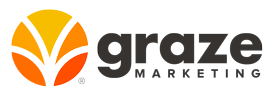When it comes to search engine optimization (SEO), it is critical to try and think like Google. While Google’s search algorithm is the company’s secret sauce, they do offer some general insight into how search engine algorithms work. According to Google:
With the amount of information available on the web, finding what you need would be nearly impossible without some help sorting through it. Google ranking systems are designed to do just that: sort through hundreds of billions of webpages in our Search index to find the most relevant, useful results in a fraction of a second, and present them in a way that helps you find what you’re looking for.
Source: Google – https://www.google.com/search/howsearchworks/algorithms/
Now when it comes to ranking for local businesses, the search engine optimization (SEO) game becomes very complicated. That’s why some marketers have dedicated all of their energy to understand what tactics and methods help to improve search engine rankings for businesses big and small. If you search yourself, you’ll see it is quite an undertaking.
But across the board, there is one ranking factor that SEO-experts agree is critical for boosting rank: link building. According to the most recent edition of Moz’s local search ranking factors (above), links to your website were viewed as the most powerful ranking factor in local organic rankings and the second most important factor for the local pack (map pack) results. (Click here for more info on the anatomy of a search result and other SEO insights.)
What Is Link Building?
Link building is the process of getting other websites to link to your site. You would assume that the more links you get to your site, the better your rank, but it isn’t that simple anymore. There once was a time when marketers would try and cheat the system by “buying” high quantities of links on other, less-than reputable websites. Google recognized this trend and made efforts to block it.
As a result, Google moved away from quantity of links towards quality of links using what the company calls “PageRank”. PageRank looks at many things, but ultimately it assumes that the more traffic and links to a page, the higher probability the site and information found on the site are trustworthy.
This has pushed marketers to rethink their link building efforts and strategies to focus more on winning links on reputable sites.
Link Building Strategies
There are many ways marketers and businesses go about link building. Some tactics are extremely labor-intensive while others are simpler. Here are some of the most common ways to earn links from reputable sites.
Sponsorship: Not only is sponsoring local events or charities great from a philanthropic perspective, but in some cases, there is a SEO benefit as well. Many of these organizations will feature a “sponsors” section of their website where they link to companies that are supporting their organization. This is a quick way to build links but requires an initial sponsorship investment. If you’re going to dedicate funds to charitable giving, find ways to get links back to your site as well.
Requesting Links in Existing Mentions: In some cases, your business might have already been mentioned in the news or on other websites. However, you might not be getting a link back to your site. By finding these mentions online and requesting a link back from the publishing organization, you may be able to earn some additional links. It isn’t a major ask, but some sites have strict linking policies.
Guest Blogging: Many businesses and marketers try to build links by offering up content to other reputable sites for posting. Often these contributions will include links back to the contributing company’s website. This is a value exchange, where the business offers insight and valuable information in exchange for a few links back to their site. While a great option, getting people to publish and link take a lot of effort beyond just creating the content. You’ll need to reach out and try and make connections with the site you hope to publish on.
Media/PR: One of the more difficult, but arguably most valuable link building strategies is getting links to your site from high trafficked, reputable news organizations. Pitching story ideas and insights to media is another labor-intensive tactic that often is best accomplished with some interesting news angle or proprietary research that doesn’t already exist. In addition, you’ll also need to have a reputation in your area as being a though leader and influencer in your space. This will help make your media pitch more compelling.
Organic vs. Paid Link Building
In many cases link building can be an expensive undertaking with no guarantee of winning any links. Larger businesses with big marketing budgets often hire agencies who specialize in this work and can spend thousands each month as they work to win new, reputable links. For small businesses, this isn’t as feasible.
One way to look at your link building efforts is organic vs. paid link building. Organic link building is the process of improving your reputation and reach in your market as a thought leader in an effort to gain attention from media and local organizations. The idea here is that when writers or journalists need expert opinions on topics related to your industry, they will find you and seek your insights because you have established yourself and your business as a local expert.
Paid link building is the process of utilizing human capital to solicit links via some of the methods mentioned earlier (guest blogging, link requests, media pitches, etc.). It can take a considerable amount of time and money when it comes to creating your pitch, find target audiences, make connections and ultimately, getting links. For this reason, this method of link building is less accessible for limited budget businesses.
Next Steps
In our experience, we have seen success by taking the “organic” approach to link building. With a focus on value-adding content and insights, some of our clients have received media inquiries organically, without having to pitch. This requires a dedication to content in the form of helpful videos, blog posts, reports, guides, research and more.
The benefit of focusing on content is that the content supports your SEO efforts while also giving you material to promote on your digital channels (social, blogs, emails, etc.). The link opportunities that may come from these efforts are simple a bonus.
In addition, sponsoring and supporting charities and non-profits is another great way to win links. More importantly, it gives you a chance to give back to those that need the support and gets you involved in your local communities. Whatever the case, it is critical that you spend time thinking about how you can build high quality links back to your site and do so within a budget.

